A group of 43 farmers from Sindh have sent legal notices to two big German companies demanding a compensation of euro 1 million for the losses they suffered in 2022 floods. The farmers claim that the flood was a manifestation of climate change caused by carbon emissions and hold these companies responsible for the emissions.
These farmers from different villages of Dadu, Jacobabad and Larkana districts are being assisted by two German human rights organizations, the European Centre for Constitutional and Human Rights (ECCHR) and Medico International. Locally, they are being supported by the National Trade Union Federation (NTUF) and the HANDS Welfare Foundation.
The group sent legal notices to Rhineland-Westphalian Electricity Works (RWE) and Heidelberg Materials on October 28 and the defendants have four weeks to respond to this notice or pay the damages demanded by the plaintiffs.
RWE is one of Europe’s largest electricity producers and has historically relied heavily on coal, making it one of Europe’s biggest contributors to carbon emissions. Heidelberg Materials is among the world’s leading cement manufacturers — and the cement sector remains a major carbon-intensive industry on the planet.
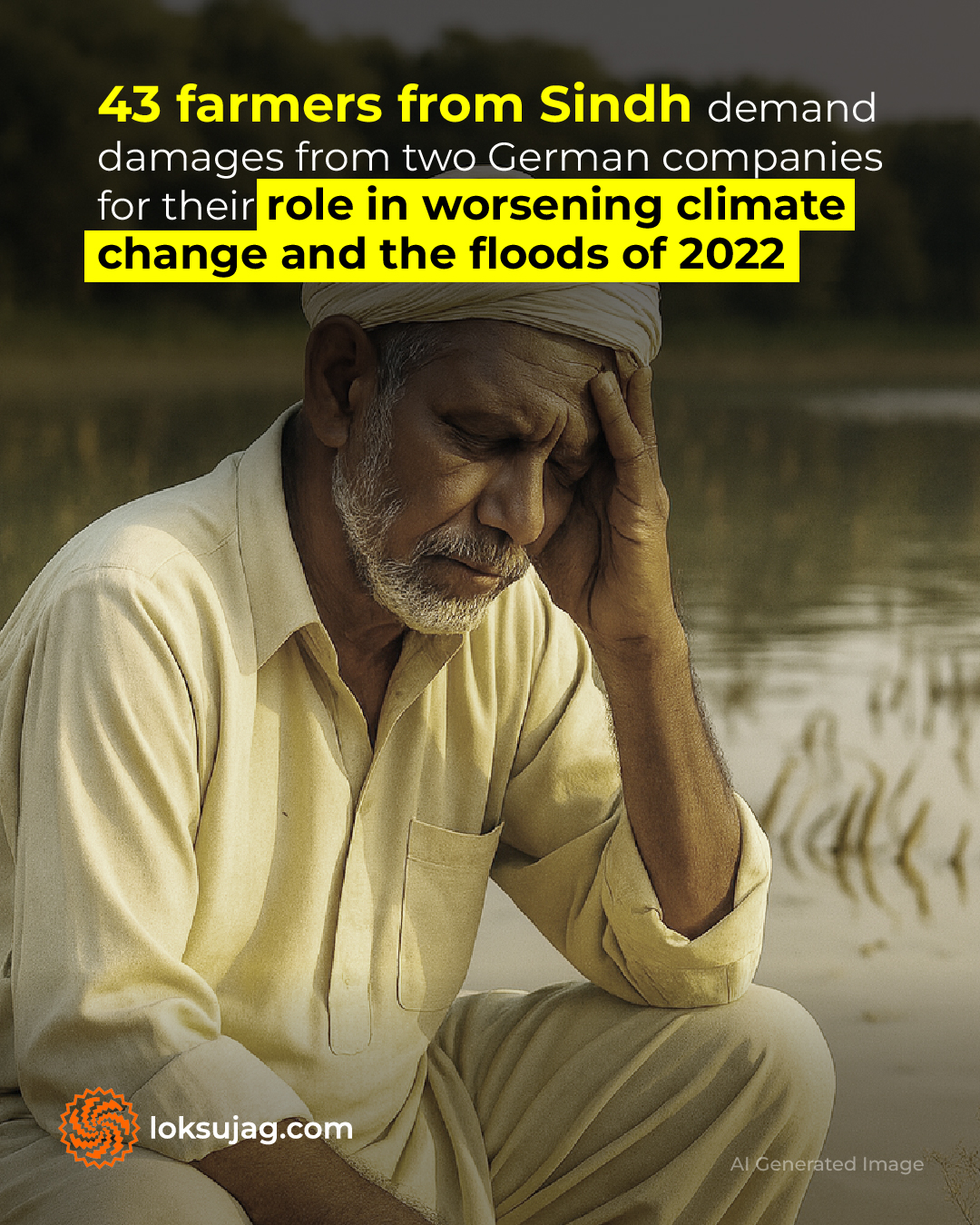
Why these two German companies?
Berlin-based Annabelle Brüggemann is a senior legal advisor at ECCHR. In an online talk with Lok Sujag, she explained: “RWE and Heidelberg are among 180 companies that account for almost 70 percent of historical industrial emissions since 1965. Their individual shares stand at 0.68% and 0.12%, respectively.”
This does not seem like much but it is actually more than the emissions of many countries. According to reports, Pakistan’s total share in emissions by 2023 had amounted to just 0.51 percent which is less than that of RWE.
“Historical emissions by these companies have an effect on the whole world and they contribute to extreme weather events like the [2022] floods in Pakistan, making them more frequent and more intense,” she adds.
The RWE also has a history of being hostile towards demands from climate activists.
“In 2023, the RWE sued climate activists who were blocking the Lützerath coal mine for 2.07 million euros,” says Minhajul Arifeen, a German-Pakistani volunteer at the Medico International.
He adds; “This shows us how seriously they take climate change. They only care about profits with no regard for how many people die in the Global South as a result of their actions”
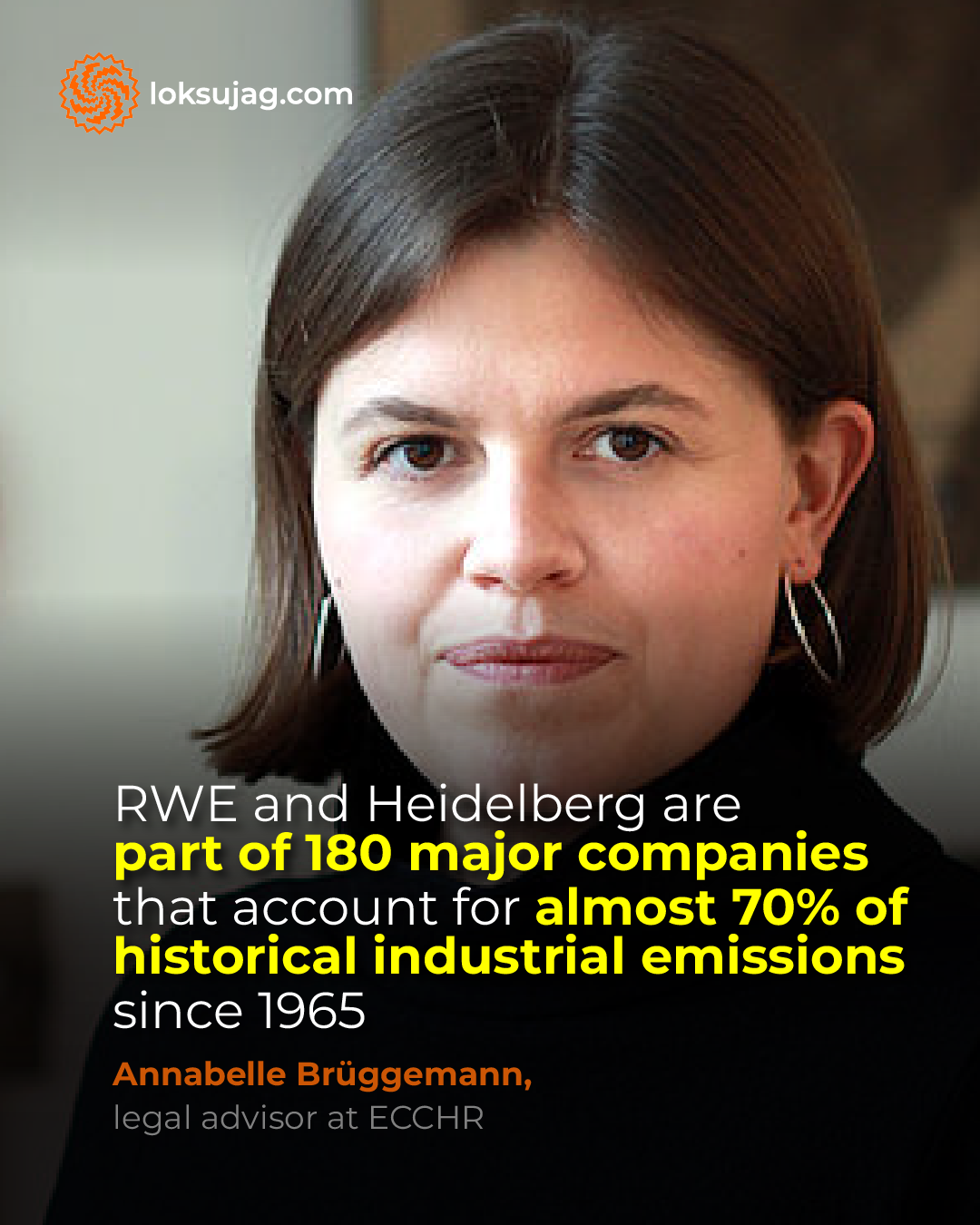
Can a causal link between German companies’ actions and losses to Sindhi farmers be established?
The common assumption is that it is not possible to establish a direct link between carbon emissions from activities of some companies and damages suffered by other people due to degradation of environment, especially not in a court of law.
But Annabelle thinks that a causal link between the two can be established. “There is aggregated science or attribution science that looks at what effect climate change has on extreme weather events like the 2022 floods. It uses modelling and concrete data from weather stations to show how and to what extent global warming increased intensity and likelihood of the [disastrous] event. A lot of scientists are looking into the 2022 floods and they all see a clear link of these with climate change.”
Annabelle says that her organisation has commissioned expert opinion from scientists looking at this event and is collecting local data to show how climate change has had an effect on this event. “We will present this in court if we move to the next stage,” she added.
Lok Sujag reached out to RWE and Heidelberg Materials for comments. RWE did not respond while Heidelberg shared the following statement: “We confirm that we have received a letter on Tuesday (28 October) from a law firm requesting compensation for alleged climate-related damage. We are currently reviewing this letter”.
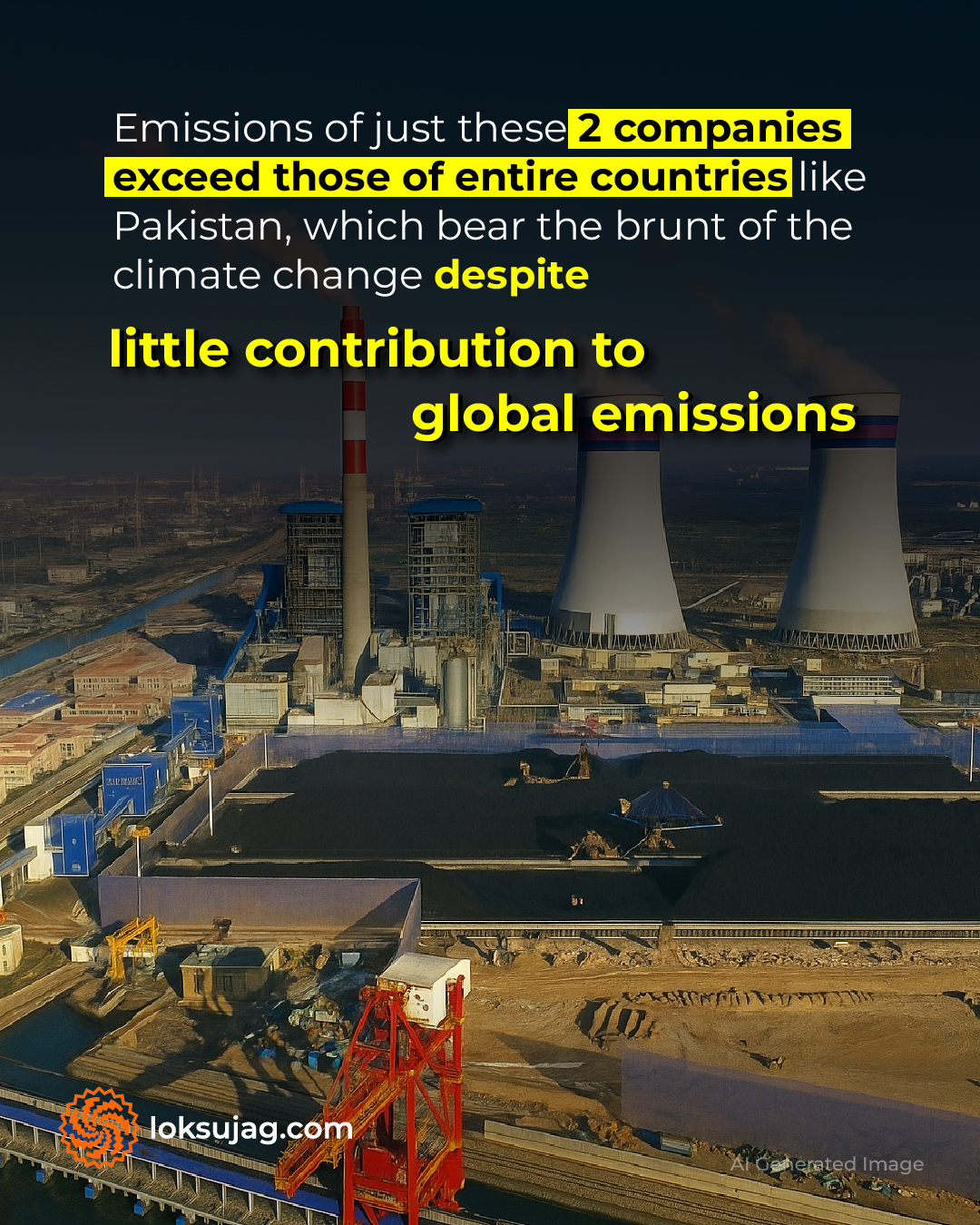
A precedent for climate accountability
This case is part of a growing body of cases in which communities are holding major polluters directly accountable for damages. The survivors of typhoon Odette in the Philippines have filed a case against Shell in October 2025 (last month) in the UK. Earlier, a Belgian farmer sued Total Energies in March 2024 and residents of Indonesia’s Pari Island sued Swiss cement giant Hocim in Switzerland in 2022. All of these complainants have demanded compensation from major emitters for impending or incurred damages.
The supporters of Sindhi farmers are relying on a legal precedent set in Germany in Saúl Luciano Lliuya vs RWE case. In 2015, Lliuya, a farmer from Peru, had sued RWE arguing that the company’s emissions accelerated melting of glaciers above his hometown of Huaraz, causing the nearby Lake Palcacocha to swell putting the city at risk of a catastrophic flood.
“Although this farmer (Lliuya) lost, because it was not proven how big the risk to his house was. But the court set an important precedent that carbon majors like RWE can be held responsible for damages under German tort law for these kinds of emissions,” says Annabelle Brüggemann.
She adds, “The court also found that, at least since 1965, RWE and other carbon majors could and should have known, positively, about the devastating effects of their emissions on climate change, and the resulting damages, such as extreme weather events. They (the court) established responsibility because these companies knew or at least could and therefore should have known.”
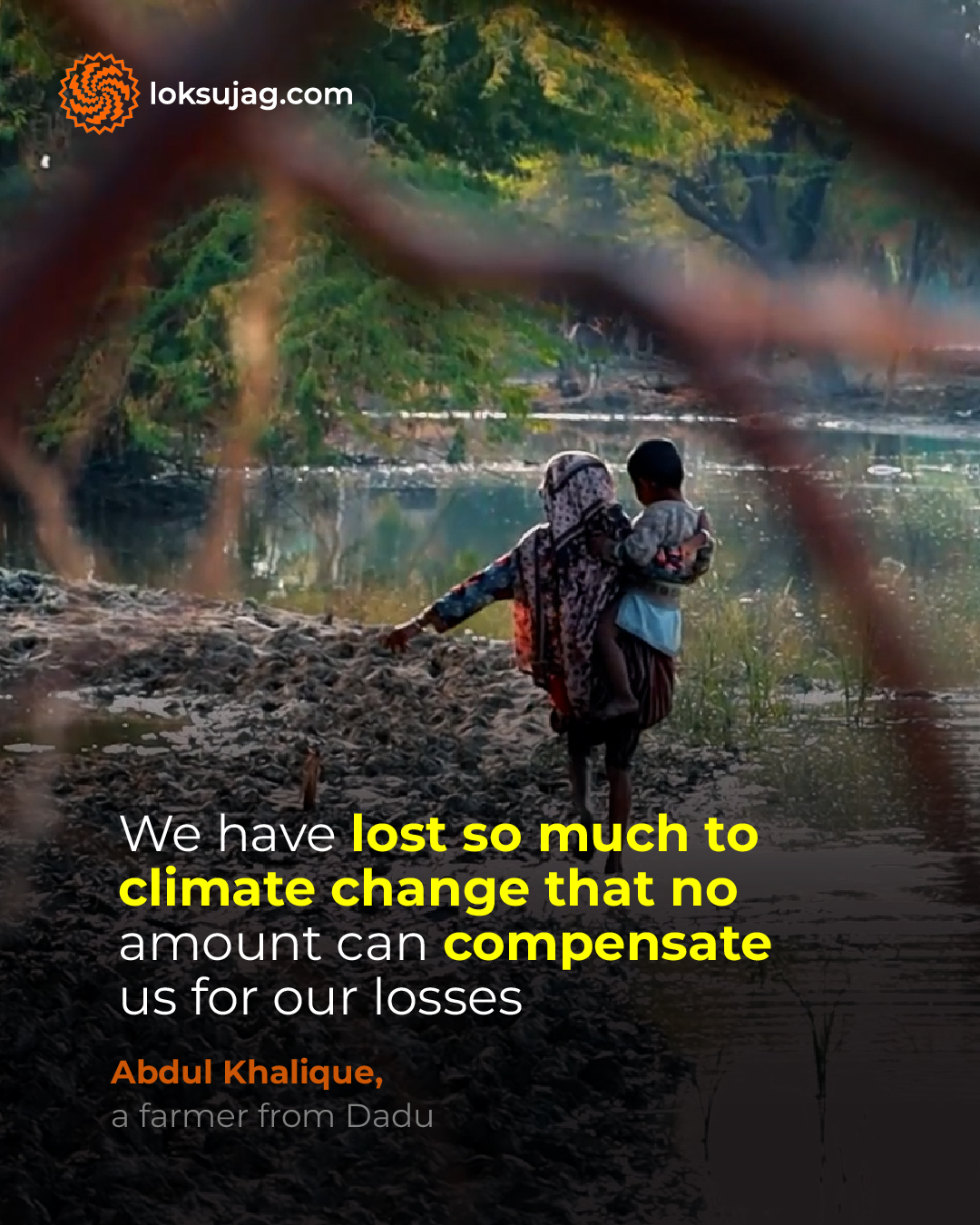
Why the case is important at this time?
Victory in the case would mean a lot more than the compensation money, euro one million or Rs 32 crore, that the flood affected Sindhi farmers may receive.
Abdul Khalique from village Deed Sharif of district Dadu is one of the 43 complainants. His 60 acres farm was devastated by the flood is 2022. “We have lost so much that no amount can compensate us,” says Abdul Khalique.
This case has the potential to set an immensely important legal precedent. If the court rules that companies like the RWE and Heidelberg Materials can be held liable for climate impacts across borders, it could open the door for countless other communities to seek justice for climate change-related damages.
Karin Zennig, a climate justice organiser who is working on this case with Medico International thinks that in the new governments that have taken over in last few years, governments have distanced are distancing themselves from policies of climate justice.
Talking to Lok Sujag she said that there is no political force anymore that is willing to support green transition, which makes it even more important to push for climate causes in other avenues like courts.
This case shall be seen in this perspective this that even if the governments completely abandon climate causes the struggle will continue.
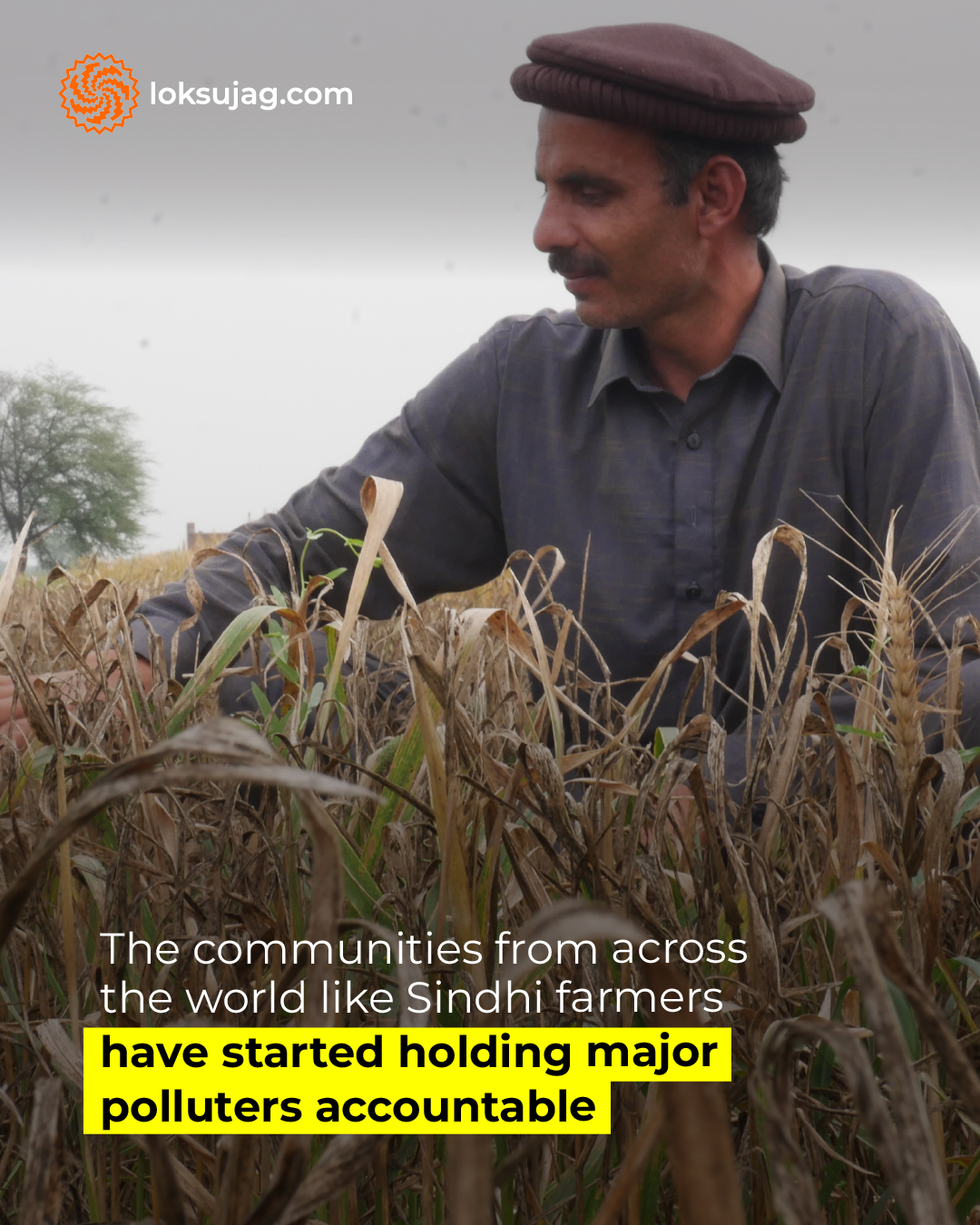
‘We cannot give up just because the enemy is too big’
RWE and Heidelberg have almost four weeks to respond to the legal notice. They can agree to negotiations, offer compensation or refuse it, in which case the claim will move to the court in Germany.
The legal process is expected to be long, complex, and expensive, involving expert testimony, climate models and multiple rounds of appeals. Cases of this nature often take years. Moreover, the RWE and Heidelberg are big companies with an enormous amount of resources and best lawyers at their disposal.
Those involved in the case are very well aware of this and say they are prepared for the long fight. Their resolve is reflected in Karin saying ‘We cannot give up and stay silent just because the enemy is too big”. She says their responsibilities shall correspond with their size.
Karin explains that if there is a verdict in favour of the farmers, it would mean that the externalized costs of production, which have mainly been shifted on to the shoulders of those in the global south, will have to be factored in by the corporations. This would make their exploitative production models unprofitable making it necessary to develop a just and humane model.
NTUF General Secretary Nasir Mansoor, whose union is involved in aiding the farmers in this case, says, “Usually everyone becomes active around COP every year, but so far the legal route of demanding climate accountability has not been explored. This case will open the doors of justice.”
What happens next will determine not only the fate of these 43 farmers but the strength of the emerging global effort to make climate accountability real.
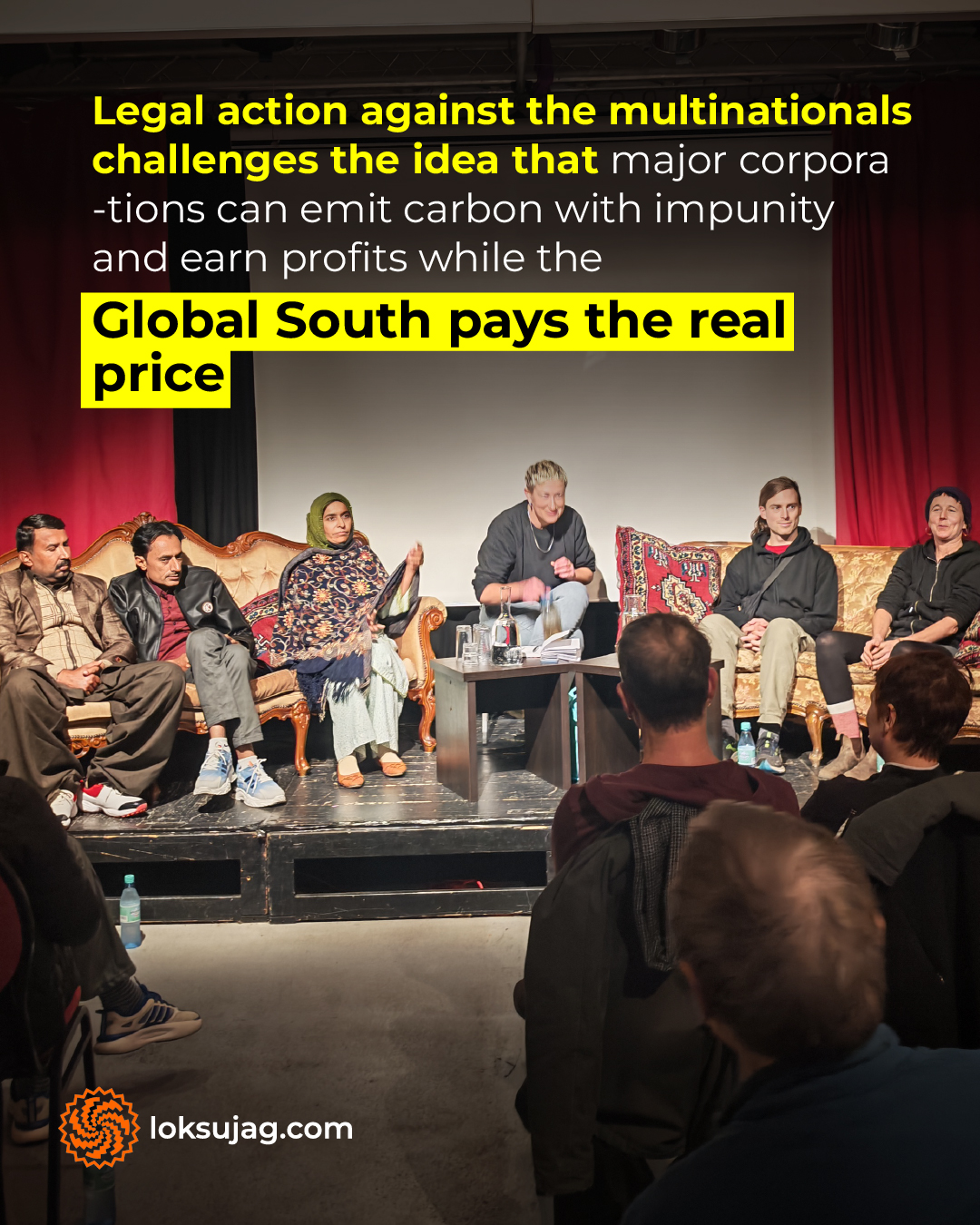
Who is who: Brief profiles of supporters of the case
European Centre for Constitutional and Human Rights (ECCHR) is a nonprofit law firm that describes its mission as ‘using the law for a world free from torture, exploitation and fortressed borders.’ Its current cases include a case against German fashion brand KiK for labor rights violations in the factories of their Pakistani contractors alongside the Pakistani trade union NTUF. and one against eight suspects for committing war crimes during the Syrian Civil War. After the Baldia Factory fire, ECCHR also led litigation against German brand KiK, whose clothes were being manufactured in the factory.
Medico International is a human rights organisation based in Frankfurt, Germany. The organization describes its goal as the best possible access to health for all people, which it believes is a political matter. Its work includes emergency and long term relief projects alongside advocacy for several causes such as a binding worldwide arms embargo and sanctions against natural resource trade in areas where they contribute to the continuation of armed civil conflict.
National Trade Union Federation is a Karachi-based trade union that represents workers from the textiles, garments, leather, shoes, metal and shipbreaking industries. It works to empower workers by helping them form unions and advocate for their rights. It believes in building a society where every worker is treated with respect, earns fair wages, and works in a safe and healthy environment.
HANDS is a Pakistani nonprofit development organisation that was founded in 1979. Its programs include health, education, and climate resilience and it works in 61 districts of the country. Its mission is to ensure “Quality of Life for All” through equitable, sustainable, and locally empowered solutions.
This is an updated version of the story earlier published on this page.
Published on 17 Nov 2025

















